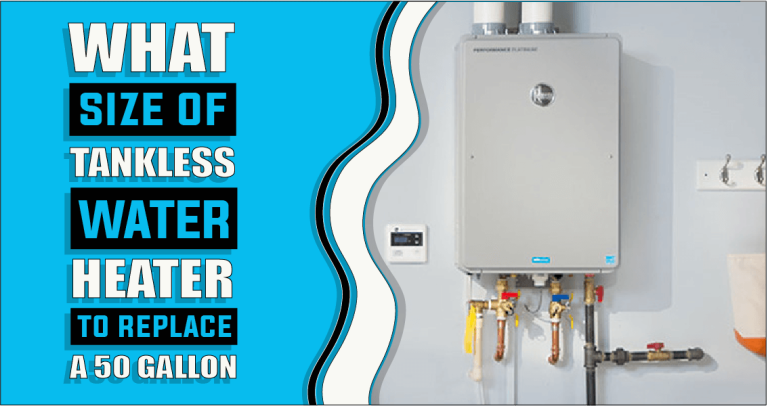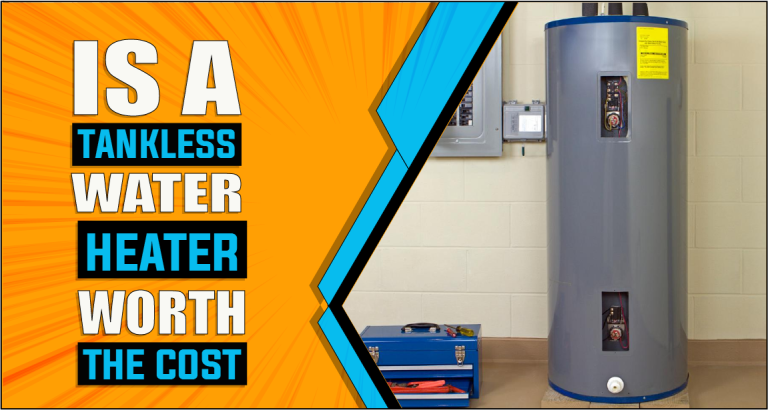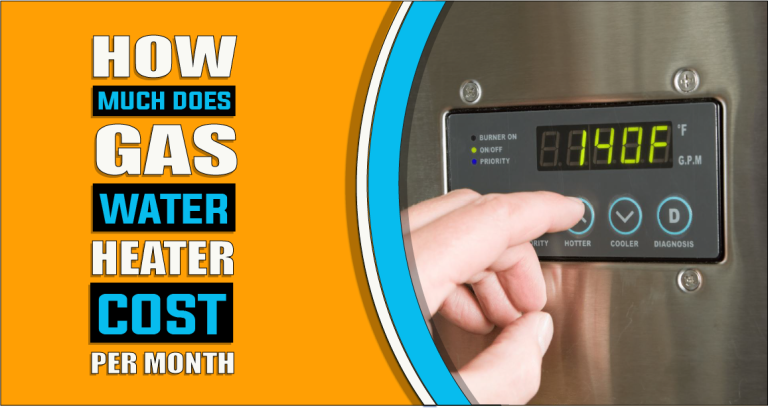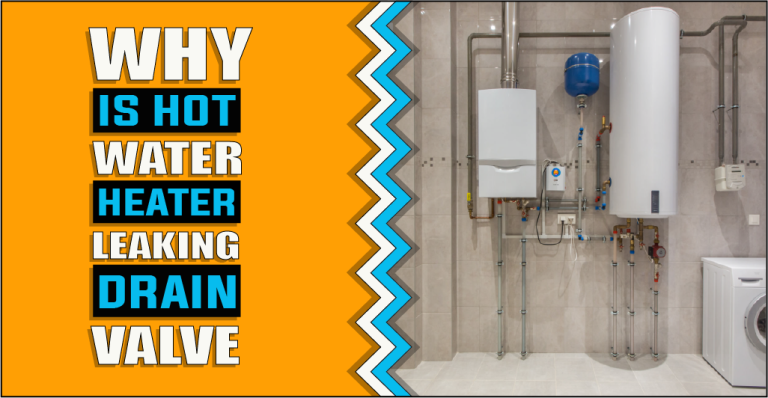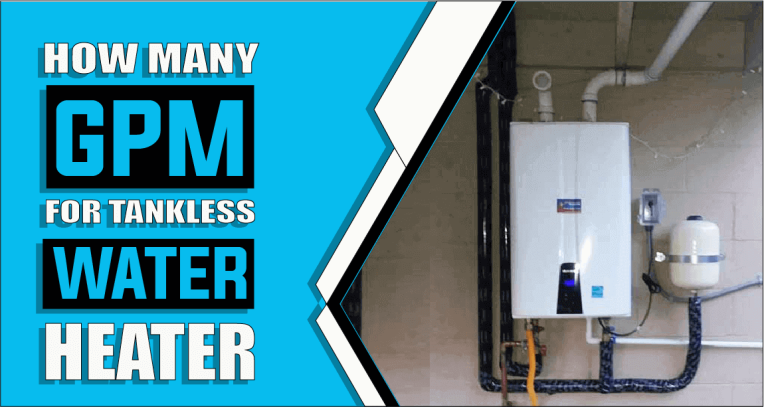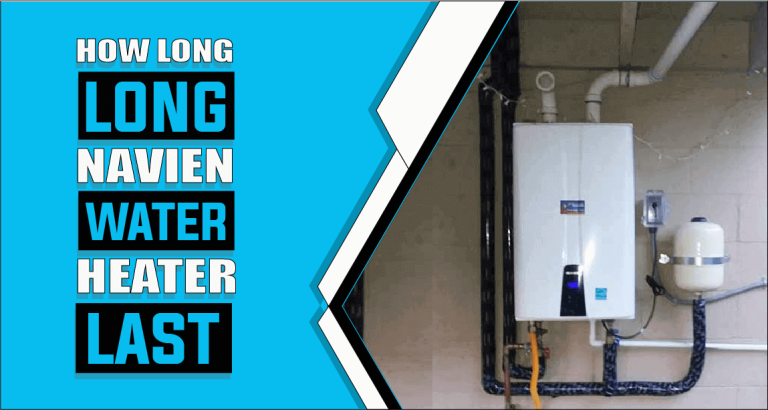How Long Does It Take For A Tankless Water Heater To Heat Up – The Truth Reveals
Have you ever wondered how quickly a tankless water heater can heat your water? If you’re considering switching from a traditional storage tank type to a more efficient and environmentally friendly tankless system, you may be wondering how long it takes for a tankless water heater to heat up until your hot shower is ready. Thankfully modern advancements have made it surprisingly fast for these types of systems to warm the water often in just seconds! In this blog post, we’ll explore exactly how long it typically takes for a tankless water heater to give your home that invitingly hot stream of water. Read on for an inside look at the specifics of getting hot water with ease and efficiency!
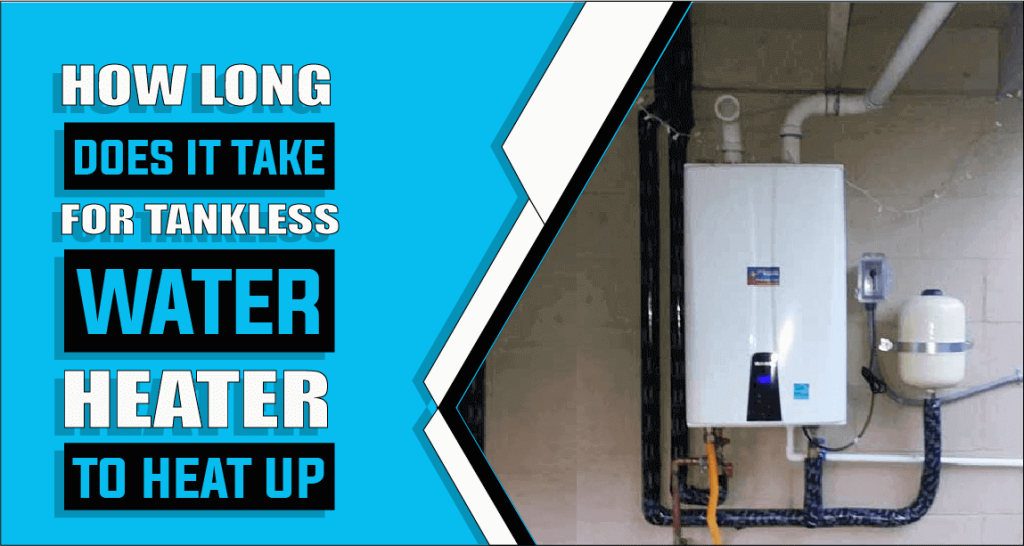
Let’s examine how long it takes for a tankless water heater to heat up
A tankless water heater typically takes anywhere from several seconds to several minutes to heat up, depending on the size and power of the unit. For some systems that use smaller units, it can take as little as 10-15 seconds while larger units can take up to several minutes. This time frame is primarily because these water heaters don’t have a storage tank like traditional water heaters and have to work quickly to heat the water that passes through them. The larger the system, the more time it takes for it to generate enough hot water for multiple taps or appliances running simultaneously.
Furthermore, colder inlet temperatures will cause a tankless system to take longer than warmer inlet temperatures since more energy is required to raise the temperature of cold water. Most tankless systems are designed with either a recirculating pump or an on-demand heating element which helps reduce wait times by providing hot water faster. With proper maintenance and installation, you can expect your tankless water heater to provide fast and efficient hot water for years to come.
Factors Impacting the Time Tankless Water Heater Takes to Heat Up
Let’s explore the different conditions that affect how quickly a tankless water heater warms up, ranging from ambient temperature to flow rate. Come along and discover just what it takes for your hot shower dreams to be realized!
1: Size of the Tankless Unit
The size of the tankless water heater is an important factor that impacts the time it takes to heat up. Tankless units come in a variety of sizes, ranging from small single-point tankless systems to larger whole-house systems designed to provide an endless supply of hot water. The size of the unit determines how quickly it can heat the water, with larger units able to heat more water faster than smaller ones.
Additionally, individual components like burners and heat exchangers affect how quickly a tankless unit can heat water, as well as its overall efficiency.
2: Temperature Setting
The temperature setting on a tankless water heater also has an impact on how long it takes for the unit to heat up. Generally speaking, higher temperatures take longer to reach than lower ones since they require more energy and time to produce hot water.
For most applications where hot water is needed in short bursts like showering, it’s usually best to set the temperature around 120 degrees Fahrenheit; this will provide adequate hot water while allowing for quicker heating times.
3: Pipe Diameter
The diameter of the pipes used is another important factor affecting how quickly a tankless unit can heat its incoming supply of cold water. Smaller pipes require more energy and time for hot water to travel through them and reach their intended destination, thus increasing the overall heating time of a tankless system. Larger diameter pipes are recommended when possible since they reduce resistance and allow for quicker hot water delivery times.
4: Incoming Water Temperature
Incoming water temperature is also a factor that affects how quickly a tankless unit can heat its supply of cold or lukewarm water. In general, colder incoming temperatures increase heating times since more thermal losses need to be converted into usable energy before hot water can be produced.
However, warmer incoming temperatures decrease heating times since less thermal energy needs to be converted into usable energy for producing hot water.
5: Distance Between the Unit and the Point of Use
Distance between the tankless unit and the appliance is yet another factor that affects heating times; generally speaking, shorter distances allow for faster flow rates of hot water delivery while longer distances result in slower flow rates due to added resistance by walls and other obstructions in between each point along the way.
6: Flow Rate of Hot Water Usage
The flow rate of hot water usage is also important when considering how quickly a tankless system can heat its supply of cold or lukewarm incoming water; higher flow rates require more energy and take longer periods compared to lower flow rates.
Thus, when installing new equipment or appliances that require higher amounts of hot water output, be sure that your existing plumbing infrastructure is suitable enough to accommodate increased flow rates without significantly impacting overall heating times.
7: Age of the Unit
Lastly, age plays an important role when determining how quickly a tankless unit can heat its supply; older units typically have less efficient components like burners or valves which may not perform as well as their newer counterparts do, thereby resulting in slower heating times compared to newer models with better parts installed inside them that operate at higher efficiencies than older models would allow for.
With proper maintenance though, older models should still be able to operate at roughly similar efficiency levels as newer ones provided they receive regular servicing from qualified technicians who specialize in working with these kinds of systems specifically.
How long does it take for a tankless water heater to heat up?
For those looking for convenience and efficiency, the average tankless water heater needs just seconds to provide gallons of hot water. So say goodbye to waiting around forever – your hot shower is only a few moments away!
1: Average Time Required to Heat Up the Unit Entirely
The average time required to heat a tankless water heater entirely depends on several factors, such as the size of the unit, the water temperature and flow rate, the temperature setting of the unit, and the type of fuel used.
Generally speaking, it can take anywhere from 10 seconds up to two minutes for the water to heat up completely. This time range can be affected by environmental conditions, such as colder winters or higher altitudes.
2: The capacity of Delivering Hot Water per Minute or Hour
In terms of capacity, tankless water heaters are capable of delivering hot water at a rate of 2-5 gallons per minute while most can reach temperatures ranging from 80 degrees Fahrenheit to 140 degrees Fahrenheit depending on their settings. This means that it takes about 4-10 minutes for them to provide enough hot water for a normal shower or bath depending on how much hot water is used.
Additionally, tankless units have higher energy efficiency than traditional storage tanks and have no storage volume limit which means they can provide an unlimited amount of hot water. Tankless models also come with advanced features such as freeze protection and recirculation pumps which further improve their energy efficiency as well as their ability to deliver immediate hot water when you need it.
Time taken various tankless water heaters take to heat up
A tankless water heater is a wonderful addition to any home, but you might be wondering exactly how long it takes for these miracle machines to heat up. Different models take varying amounts of time So find your perfect hot-water fit today and start enjoying the peace of mind that comes with instant on-demand hot showers or baths in no time at all.
1: Gas Tankless Water Heater
Gas tankless water heaters are an excellent choice for those looking for a reliable, energy-efficient way of heating their home’s hot water. On average, it takes a gas-powered tankless water heater only a few seconds to heat the water, depending on the size of the unit, and the amount of incoming cold water. This makes them ideal for situations where you may need hot water in a hurry, like doing the dishes or taking a shower.
With gas tankless water heaters, there is no need to wait for minutes or even hours for warm water as you would with some traditional storage tanks. Plus, they don’t require much maintenance and can easily be installed indoors or out.
2: Electric Tankless Water Heater
Electric tankless water heaters offer similar convenience and cost savings to gas-powered models. They also produce hot water more quickly than traditional storage tanks usually in about a second but their larger size means that they take longer to warm up the full amount of incoming cold water. Additionally, electric tankless models require 240 volts rather than 120 volts like most other appliances in your home, so be sure to check your electrical panel capacity before installation.
However, despite this initial investment in wiring modifications or upgrades electric tankless units still offer significant energy savings when compared to standard units due to their ability to generate hot water on demand without preheating stored amounts.
Reasons for slow hot water from a tankless heating system
Have you noticed your hot water arriving a little more slowly than usual? If so, there could be numerous reasons why, from limescale buildup to wrong-sized pipes. Find out more about the potential culprits behind sluggish tankless heating systems!
1: It might have to do with distance:
Distance might be a factor when it comes to slow hot water from a tankless heating system. If the distance between the point of use and where the water heater is installed is too great, there may not be enough time for the water to heat up by the time it leaves the faucet.
2: Possible low-volume restrictor in your system:
A low-volume restrictor could also be to blame for the slow hot water from a tankless heating system. This valve has an adjustable flow rate that can limit the amount of water passing through your plumbing fixtures at any given moment, and if set too low, it could produce inadequate hot-water flow for certain applications or fixtures.
3: It might be due to the location of the system and environmental conditions:
If your tankless system is installed outdoors, it may take longer for the hot water to reach its destination due to environmental conditions like humidity, temperature, and wind. Cold temperatures can also reduce the efficiency of the unit, resulting in a slower-than-normal heating process.
4: Your water heater might be past its prime:
The age of your water heater could be impacting its performance as well; tankless water heaters have an average lifespan of about 10-20 years depending on their usage and maintenance history, so if your unit is past its prime, you should consider replacing it with a new one that is better equipped to meet your needs.
5: Sediment could have accumulated:
Sediment buildup over time can also reduce the efficiency of a tankless water heater and could contribute to slower-than-normal hot-water delivery times. To prevent this from happening, regular maintenance such as flushing out sediment or changing filters should be performed periodically throughout the year to keep things running smoothly and efficiently.
6: Your water heater can be undersized:
Lastly, another potential cause of slow hot-water delivery times from a tankless unit is if it’s undersized for your specific application. Typically, these units are sized based on flow rates and temperatures which vary according to each situation. If your system was installed without taking into account all these factors it may not be able to provide enough hot-water delivery during peak usage times or for multiple faucets simultaneously. Both scenarios require more power than what’s currently available to deliver adequate amounts of hot water quickly enough.
Steps to take for speeding up hot water delivery
Do you often find yourself waiting for what seems like forever for hot water in the shower? You’re not alone! Here are a few tips to help your household get heated up faster. These steps will have your showers steaming up before long.
1: Purchase a Hot Water Circulation System
Purchasing a hot water circulation system is an effective way to help ensure that hot water delivery is significantly faster in any household or commercial setting. This type of system works by manually pumping heated water out of the water heater, through pipes, and back into the system, thus generating a continuous flow of warm water. In this way, hot water will always be readily available without having to wait for it to heat up again.
2: Think About a Bigger Tankless Unit
When looking to speed up hot water delivery, one should consider investing in a larger tankless unit. Tankless units can deliver hot water instantly as they do not need to store it in advance; rather, these units heat the cold water as soon as it is requested, thereby providing almost instantaneous access to hot running water.
3: Perform Regular Maintenance on your Tankless Water Heater
If you are using a tankless water heater, make sure that tankless units continue operating at peak efficiency levels, regular maintenance must be performed on them from time to time. This includes checking for any signs of wear or damage on parts such as the thermostat and heating element to make sure that the unit is functioning properly and efficiently generating enough heat for quick delivery of hot running water when needed.
Additionally, checking for clogged lines or filters should also be done regularly; if any clogs are present then they should be removed or replaced so that further problems are avoided down the road.
4: Get a Tankless Water Heater Instead
If relying on a traditional tank unit when trying to achieve faster delivery of hot running water then switching over to a tankless system may be worth considering instead; this option offers far better performance than its counterpart due to its ability to generate hot running water instantly without having any pre-stored supply stored away in advance like a tank unit would normally require.
Frequently Asked Questions
There can be some reasons why it may take a long time for your tankless water heater to heat up. This could include incorrect sizing, sediment build-up in the unit, or inefficient operation due to lack of maintenance.
There are limits to how much water a tankless water heater can heat at once. The temperature of the water will change if you use the dishwasher, washer, and shower all at once or if you want more hot water than the heater can supply.
Yes, tankless water heaters produce hot water instantly as it does not need to store it in advance as a traditional tank unit would. The heater heats the cold water as soon as it is requested and provides almost instantaneous access to hot running water.
Yes, you can increase the temperature of your tankless water heater by adjusting the thermostat. It is important to do this carefully as setting it too high can potentially cause damage to the unit. Be sure to adjust in small increments and never exceed 140°F (60°C).
There are several reasons; the water may be traveling through a long pipe before it reaches the faucet, there could be a slow response time from the thermostat, or there could be mineral deposits inside the tankless heater. Depending on the situation, one of these factors could be causing a delay in hot water delivery.
Conclusion
We hope you found this article helpful in determining how long it takes for a tankless water heater to heat up. Well, it all depends on a few factors such as the size of the unit, how often maintenance is performed, and the demand for hot water. Generally speaking, however, tankless heaters can provide hot water almost instantaneously – so you won’t have to wait long at all! As always, make sure to check your manufacturer’s instructions before attempting any repairs or adjustments yourself. This article should help you understand why it takes a little while for your tankless water heater to heat up. Remember that performing regular maintenance on your unit and keeping an eye out for any potential issues will help keep it running efficiently and effectively, ultimately providing access to hot running water in no time!
Ella John is passionate about helping her readers make the best choice when purchasing a heater. She understands that selecting a heater can be difficult and strives to provide information to help make the decision easier. Ella’s website, Heatersinfo.com, provides valuable insight into heating trends and types of heaters and tips on how to care for them. She also advises selecting the right heater based on individual needs and preferences. Her expertise in electronics makes her an excellent source of knowledge, and she is confident that anyone who visits her website will find the perfect heater information for their needs. Ella’s dedication to helping others make educated decisions about buying the right heater is unparalleled, and she hopes to continue offering her expertise for many years. With Ella’s help, finding the perfect heater can be a breeze!

